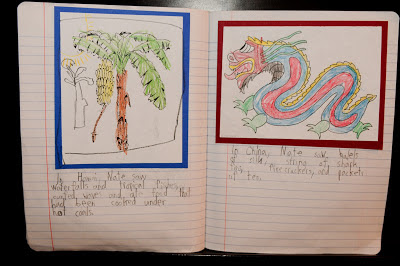by Rebecca Berg Manor
There are few feelings like those experienced at the beginning of a great musical performance. Sitting in a grand opera hall, the velvet chairs clicking as well-dressed people take their seats. The gorgeous discordance of the orchestra tuning up. The hush that comes over the crowd as the curtain lifts. Anticipation. And then, the first notes of a great composition break through the hush and you are transported to another place. This is exposure to greatness. It inspires. It motivates. It allows you to experience beauty.
Seeing great art provides the same experience. I remember standing in front of Rembrandt's masterpiece Return of the Prodigal at the Hermitage in Saint Petersburg and being so moved I had tears running down my face. Not one for public displays of emotion, I was surprised at my response but knew that being able to see such greatness in person was one of those moments that would impact me for the rest of my life.
Witnessing greatness plants seeds of humility in our hearts. When we sit and watch an orchestra play a classic masterpiece we are struck not only by the talents of the composer, it is the painstakingly cultivated skills of the performing musicians that bring the piece to life. We are reminded that achieving such a proficiency in any area requires discipline, years of training and practice, and inspiring amounts of hard work. In an era that measures success in material terms, one can lose sight of what is truly great. While magazines give awards in categories of beauty, financial success, and fame, the arts and history provide a counterpoint to these surface-y accolades. And history provides an antidote to the entitlement that is so pervasive in our culture of instant gratification and 2-day shipping. As a culture we have settled for measuring greatness by shoddy standards and our history suffers for it. When textbooks either portray a historical figure as nothing more than an accomplishment (Columbus and his voyage to the "New World" or George Washington becoming the first president of the United States) we cheat ourselves and our children of the inspiring aspects of their stories. In the instance of Columbus, we fail to see the years he devoted to pursuing his dream. We fail to see George Washington as a man who did not want to be president and governed with humility and sought advise from those he respected. On the other hand, when history is reduced to hero-worship we forget Columbus' greed and the brutality his men showed to the native people they encountered. We forget or whitewash George Washington's punting on the issue of slavery. Full-colored history provides aspirational portraits of greatness along with warnings we would be wise to heed. The great stories of the past allow us to dive into them, to mull over their many-faceted details, to provide a model of growth. Great art inspires, gives us a glimpse of what is possible should we devote ourselves to hard work and discipline. Its countercultural today to admire the greatness that results from hard work and discipline, but it may be one of the antidotes to the entitlement and celebrity-seeking narcissism that seems to be increasing at an alarming pace.
I would love to hear about your encounters with greatness. Has a piece of music, a performance, a painting, an encounter with a personal hero provided you with a model by which you've grown and matured? Share in the comments!

































